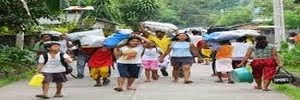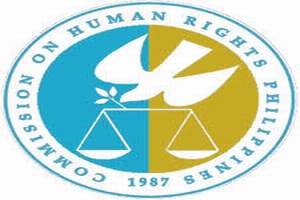
and Government Media Offices
links: http://president.gov.ph/
Article Links: http://pcoo.gov.ph/news-releases/
Article Links: http://pcoo.gov.ph/news-releases/
President Rodrigo Roa Duterte gave his nod for the
Department of Education (DepEd) to implement limited face-to-face
classes in low-risk modified general community quarantine (MGCQ) areas
to address inequality in the education system amid the present pandemic.
Education Secretary Leonor Briones proposed to the President the adoption of face-to-face classes after receiving queries from local chief executives, lawmakers as well as private and international schools.
And although DepEd may allow face-to-face learning, it will not be for the entire five-day school week but only for a day or two. Sessions could be limited to the most important things that a child should learn, Briones said during a meeting with the President in Malacanang.
Also, the conduct of in-person learning will only be allowed in schools that would meet the requirements set by the government.
 To qualify for the scheme, local educational officials will have to
assess schools that could adopt face-to-face classes and submit their
recommendations to DepEd’s regional offices for approval. These will be
subjected for review by the education secretary.
To qualify for the scheme, local educational officials will have to
assess schools that could adopt face-to-face classes and submit their
recommendations to DepEd’s regional offices for approval. These will be
subjected for review by the education secretary.
Certain conditions must be met for the conduct of in-person learning, according to Briones.
It will only be allowed in low-risk areas or those at least under modified general community quarantine in the transition phase.
Face-to-face classes will be allowed in January 2021, or the third quarter of the school year. Also, the decision to allow localized face-to-face classes will be made with due coordination between DepEd, local government units, and the local health officials.
Schools adopting such scheme will have to follow stringent health standard. DepEd and the National Task Force on COVID-19 will jointly conduct pilot testing and inspection.
“We were thinking perhaps August ‘no, but with the new developments, the numbers and so on, we should be imposing stringent health standards as suggested by the Department of Health and also by IATF (Inter-Agency Task Force for the Management of Emerging Infectious Diseases),” the education chief said.
But Briones admitted that securing a coronavirus-free environment will take time. She said the government has to prepare the buildings and ensure that social distancing will be observed.
DepEd sees the limited face-to-face classes to address inequality gaps in the educational system in the midst of the pandemic if the country solely relies on online learning.
It expects equity problems for those who don’t have access to digital equipment. PND
Education Secretary Leonor Briones proposed to the President the adoption of face-to-face classes after receiving queries from local chief executives, lawmakers as well as private and international schools.
And although DepEd may allow face-to-face learning, it will not be for the entire five-day school week but only for a day or two. Sessions could be limited to the most important things that a child should learn, Briones said during a meeting with the President in Malacanang.
Also, the conduct of in-person learning will only be allowed in schools that would meet the requirements set by the government.
 To qualify for the scheme, local educational officials will have to
assess schools that could adopt face-to-face classes and submit their
recommendations to DepEd’s regional offices for approval. These will be
subjected for review by the education secretary.
To qualify for the scheme, local educational officials will have to
assess schools that could adopt face-to-face classes and submit their
recommendations to DepEd’s regional offices for approval. These will be
subjected for review by the education secretary.Certain conditions must be met for the conduct of in-person learning, according to Briones.
It will only be allowed in low-risk areas or those at least under modified general community quarantine in the transition phase.
Face-to-face classes will be allowed in January 2021, or the third quarter of the school year. Also, the decision to allow localized face-to-face classes will be made with due coordination between DepEd, local government units, and the local health officials.
Schools adopting such scheme will have to follow stringent health standard. DepEd and the National Task Force on COVID-19 will jointly conduct pilot testing and inspection.
“We were thinking perhaps August ‘no, but with the new developments, the numbers and so on, we should be imposing stringent health standards as suggested by the Department of Health and also by IATF (Inter-Agency Task Force for the Management of Emerging Infectious Diseases),” the education chief said.
But Briones admitted that securing a coronavirus-free environment will take time. She said the government has to prepare the buildings and ensure that social distancing will be observed.
DepEd sees the limited face-to-face classes to address inequality gaps in the educational system in the midst of the pandemic if the country solely relies on online learning.
It expects equity problems for those who don’t have access to digital equipment. PND
Office of the President Website
http://president.gov.ph/
http://op-proper.gov.ph/
http://pcoo.gov.ph
http://www.pna.gov.ph/
http://ptvnews.ph/
http://president.gov.ph/
http://op-proper.gov.ph/
http://pcoo.gov.ph
http://www.pna.gov.ph/
http://ptvnews.ph/
Article links
PROTECTION AND PROMOTION OF HUMAN RIGHTS
------------------------------------------------------------------------------------------------
-----------------------------------------------------------------------
-----------------------------------



























































0 comments:
Post a Comment